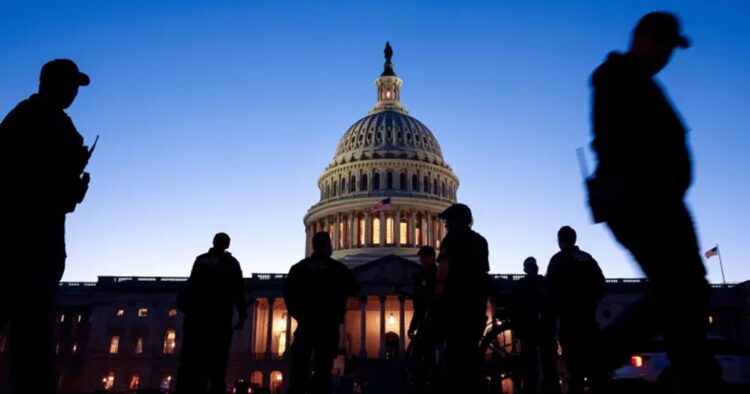Senate Approves Spending Bill, Averts Government Shutdown
The U.S. Senate has narrowly avoided a partial government shutdown by passing a spending bill just hours before funding was set to expire. The bipartisan vote of 75-22 approved a $467.5 billion package to fund various government agencies until the end of the fiscal year on September 30. This includes important sectors like agriculture, transportation, housing, energy, and veterans’ programs. The bill now awaits President Joe Biden’s signature to become law.
The urgency stemmed from the impending expiration of funding for these programs at midnight. This vote comes after months of intense negotiations and debates over government spending, which at one point left the Republican-controlled House of Representatives without leadership for three weeks. Senate Democratic Leader Chuck Schumer highlighted the significance of bipartisan cooperation in passing this package.
Although the spending package easily passed the Republican-controlled House earlier in the week, action in the Senate was delayed due to some conservative Republicans pushing for votes on immigration and other issues. Despite their efforts, these additional topics did not gain traction, and the focus remained on passing the spending bill to avert a shutdown.
However, the Senate’s approval of this bill only partially resolves the larger issue of government funding. Congress still needs to reach a consensus on a more extensive package covering military, homeland security, healthcare, and other essential services. Funding for these programs is set to expire on March 22, adding further pressure on lawmakers to come to an agreement.
The combined cost of the two spending packages would amount to $1.66 trillion. Some far-right Republicans have advocated for deeper spending cuts to address the nation’s $34.5 trillion debt. Despite these concerns, the immediate priority was to prevent a government shutdown and ensure the continued functioning of vital government services.
The prolonged debate over government spending has led to an unusual level of chaos in Congress. While it’s common for Congress to miss the October 1 deadline for enacting spending bills, this year’s discussions have been particularly chaotic. To keep agency operations running, Congress has had to pass four temporary funding bills, maintaining previous year’s spending levels.
Notably, the spending bills include $241.3 million in earmarks—local projects secured by individual lawmakers. Democratic Senator Dianne Feinstein had requested these earmarks before her passing on September 29, 2023, just two days before the start of the fiscal year. This funding reflects the diverse priorities and needs of various regions across the country.

















Comments